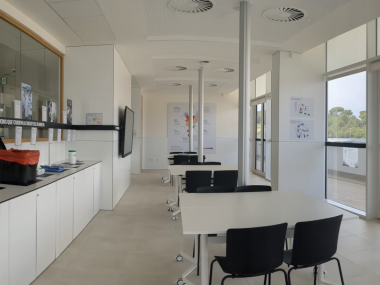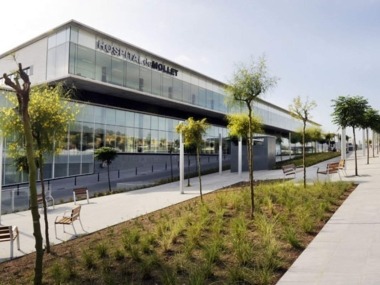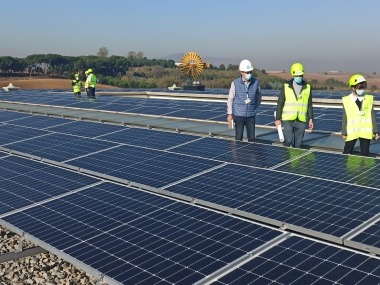Our Mollet University Hospital has won the
Gold Award in the Ashikaga-Nikken Excellence Award
for Low-Carbon Healthcare category of the International Awards 2024.
We are part of the problem: we must be part of the solution
Hospitals are some of the public centres with the greatest energy impact on the environment. For this reason, green culture must be part of the strategy and permeate the structure and processes of our centres. We work on waste management, appropriate use of resources, mobility, clinical management, and optimization of processes in order to reduce the environmental impact of our activity. Because, just as we are part of the problem, we must also be part of the solution.
How we do it: NetZero's main pilars
How we do it: NetZero's main pilars
Environmental impact reduction: the structure
Environmental impact reduction: the processes
Governance, culture and education
Sustainable processes
Sustainable processes
Reduction of length of stay in inpatient units
1 day of hospitalization generates 7kg of waste. If unnecessary stays are reduced, the environmental impact is also reduced. We prioritize home hospitalization and implement processes such as the Fast Track for knee and hip replacement to reduce hospital stays.
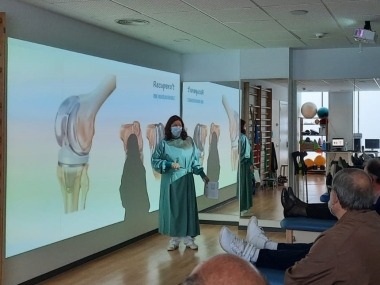

Avoid unnecessary travel & mobility
7% of indirect emissions are due to transportation. For this reason, we improve processes to reduce trips to the hospital. Online consultations have increased by 24%, we have implemented a new high-performance urology outpatient visit and a new channel of the Rehabilitation Service to improve follow-up of treatment from home
Avoid unnecessary duplication of diagnostic tests
High impact of diagnostic tests on energy consumption and waste generation. We analyze the processes to avoid unnecessary diagnostic tests for the benefit of patients and the environment
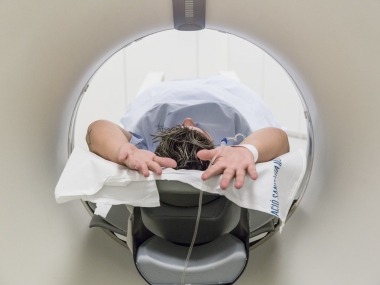
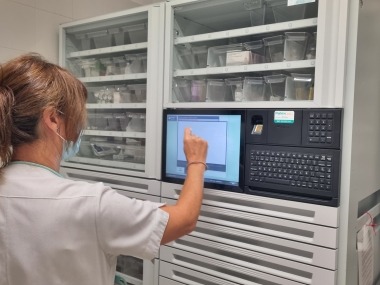
Reduction of medication waste
The new Semi-automated drug-dispensing system allows us to reduce the generation of medication waste by 29% while increasing patient safety and the efficiency of the process.
New more efficient systems
We work on permanent projects such as the recovery and treatment of anesthetic gases that seriously injure the ozone layer, improvements to the sterilization circuits to save water, the use of recyclable materials for the clothing of the surgical block, the treatment of the waters of the dialysis plant.
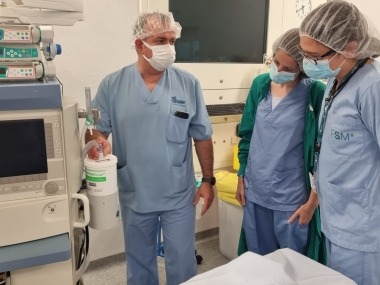
Governance, culture and education
Governance, culture and education
The primary objective of the FSM was to prioritize the well-being of people and the environment.This strong focus on social and environmental responsibility has guided our goals and achievements throughout the years, resulting in our certification and recognition as a healthy and sustainable company.
From governance to all professionals
It all began with the commitment of senior management and institutional governance to define our strategy for climate change mitigation and the fulfillment of the 2030 agenda. This commitment was clearly expressed in policies, principles, and strategic objectives. Engaging various stakeholders, particularly our professionals, is crucial to achieving our objective. We have made environmental training mandatory for our staff and conducted a survey to gauge their perception, knowledge, ideas and training on climate change.
International agreements and participations

The result
The result
The University Mollet Hospital has achieved a Net Zero in direct emissions.
We have reduced direct CO2 emissions by 91% in 12 years and the remaining 9% of emissions has been compensated through voluntary participation in the OCCC's compensation program
Our Goal
Our Goal
To achieve a carbon neutral footprint by 2030
Do you want to know more about the Green Hospital project?
Do you want to know more about the Green Hospital project?
